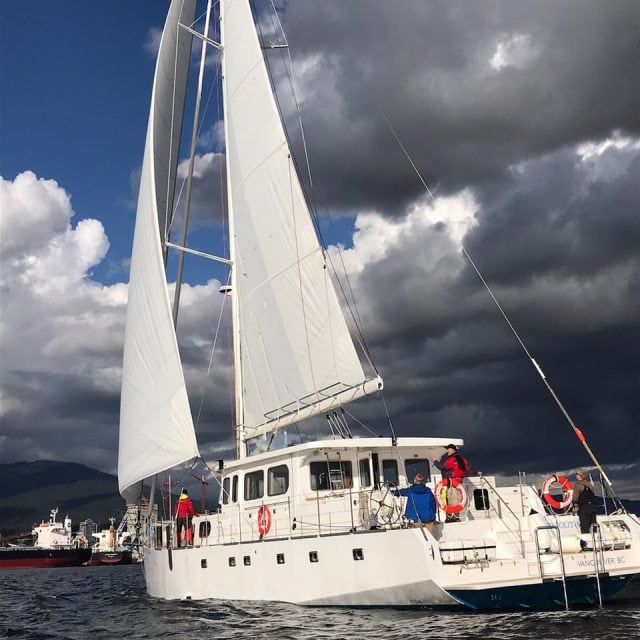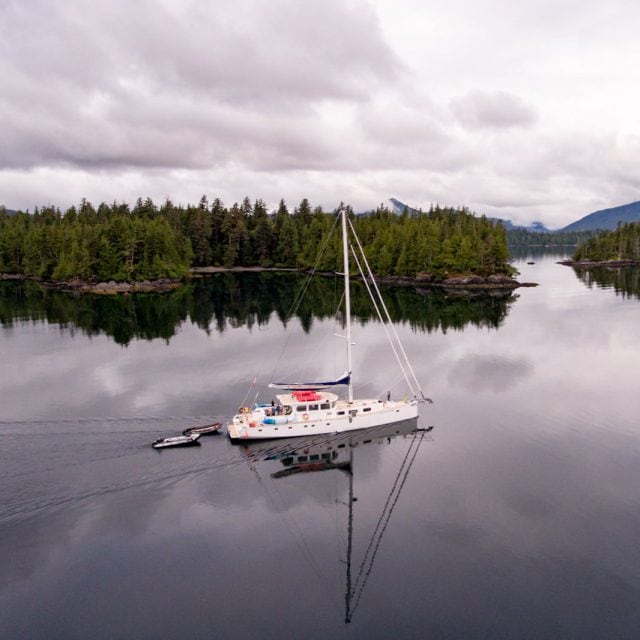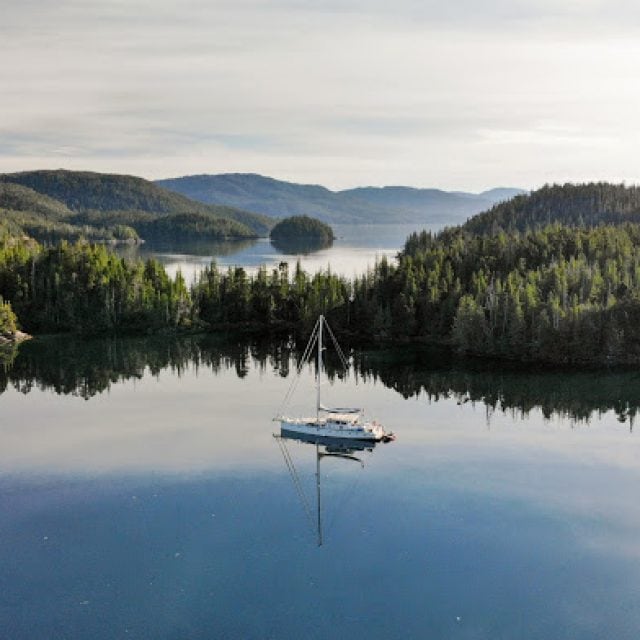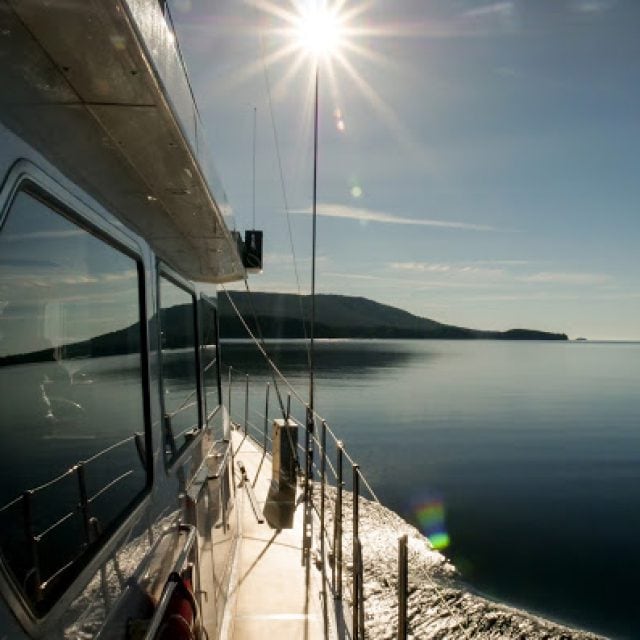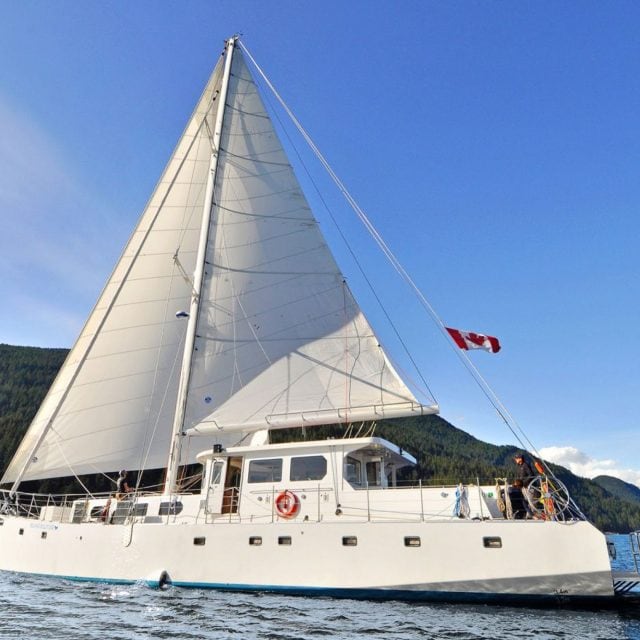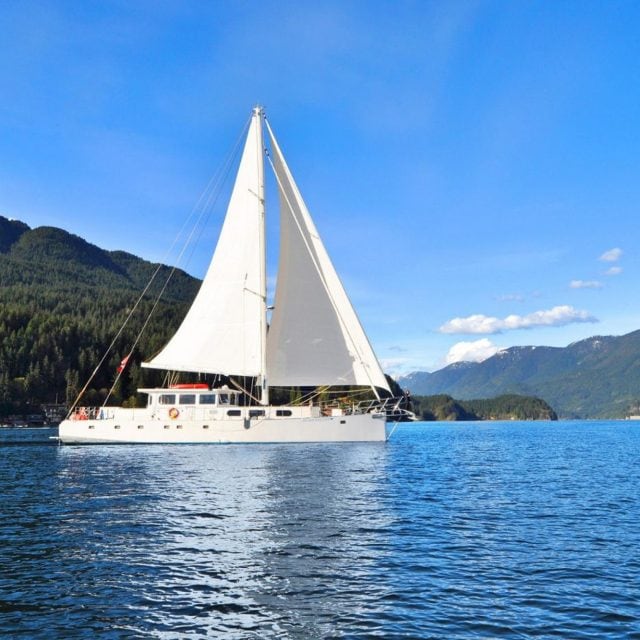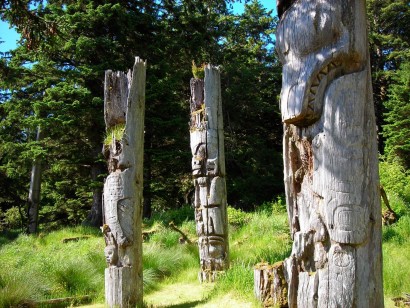British Columbia Orcas & Grizzlies Sailing
- Upcoming Departures:
- Oct 15 - 19, 2026
Highlights
Highlights
- Spectacular orca (killer whale) and humpback whale watching
- Opportunities to view black bear and grizzly bears
- Large number of bald eagles and colorful seabirds
- Beautiful scenery
Map
Map
Overview
Tour Overview
At the northern end of Vancouver Island lies a maze of islands and waterways, full of wildlife, beautiful scenery, and the history and traditions of the Kwakwaka’wakw people (Kwakiutl). The Pacific Ocean funnels into the protected waters of Johnstone Strait creating strong tidal currents, and incredibly nutrient-rich waters. Millions of salmon, returning to spawn in the mainland rivers, must converge to pass through the Strait. Groups of orca (or killer whales) hunt the salmon in the passages.
Departures & Cabins
DEPARTURES & CABINS
More dates may be available than those listed - contact us for more information.
Deck Plan

Deck Plan


What's Included
What's Included
Tour Price Includes
- All meals from lunch on Day 1 to breakfast on the last day
- All accommodation onboard ship; skipper, cook, naturalist;
- Full use of all onboard facilities, including kayaks.
Tour Price Does Not Include
- Transportation to the start point and from the finish point of the trip
- Accommodation or meals prior to the start of the trip or after the completion
- Travel or cancellation insurance
- Airport transfers
- $200 CAD Sustainability fee
- Taxes (5% GST)
- The only money participants require during the trip is for optional purchases and gratuities for the crew.
Gallery
Gallery


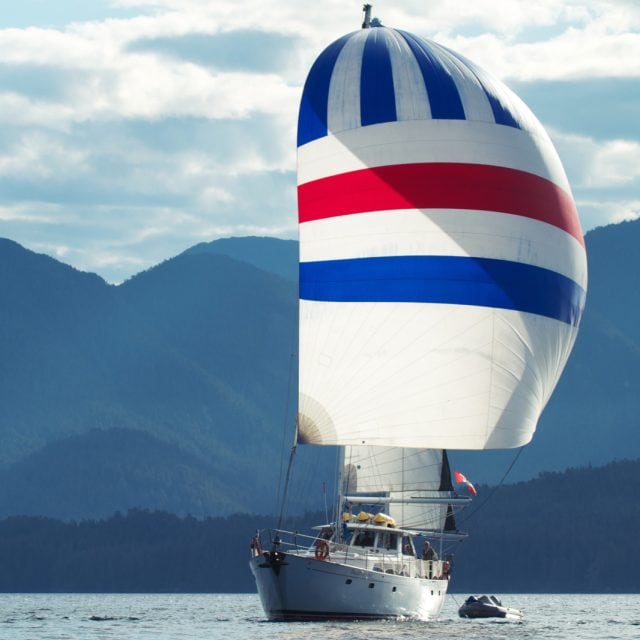
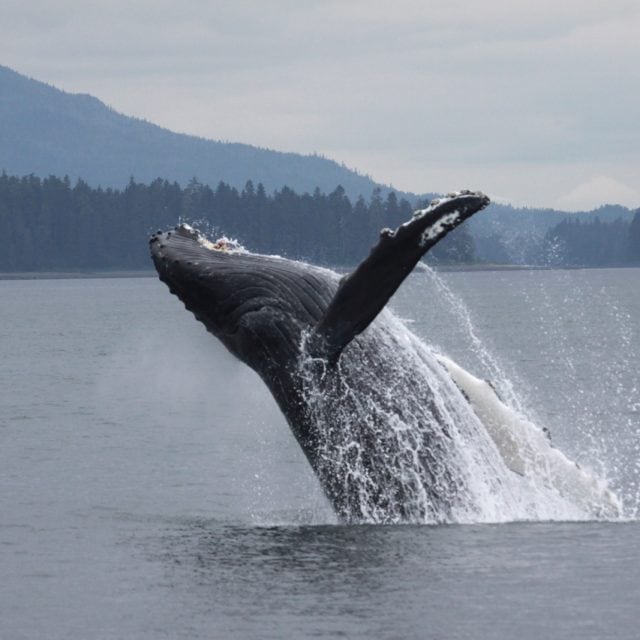


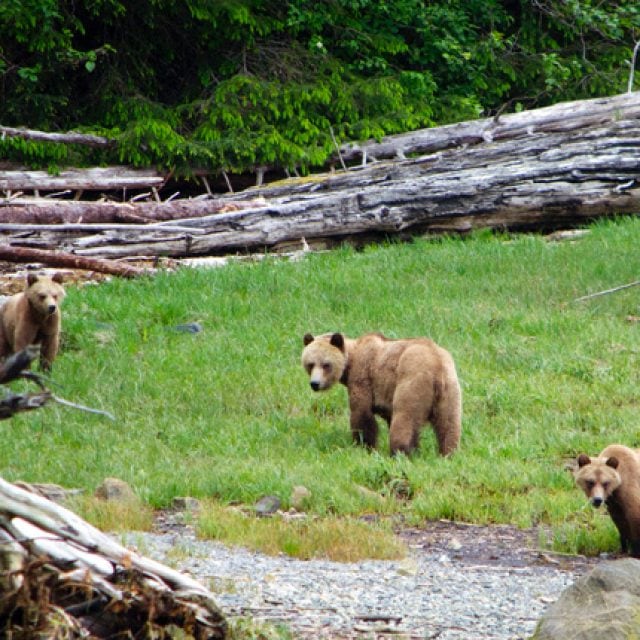



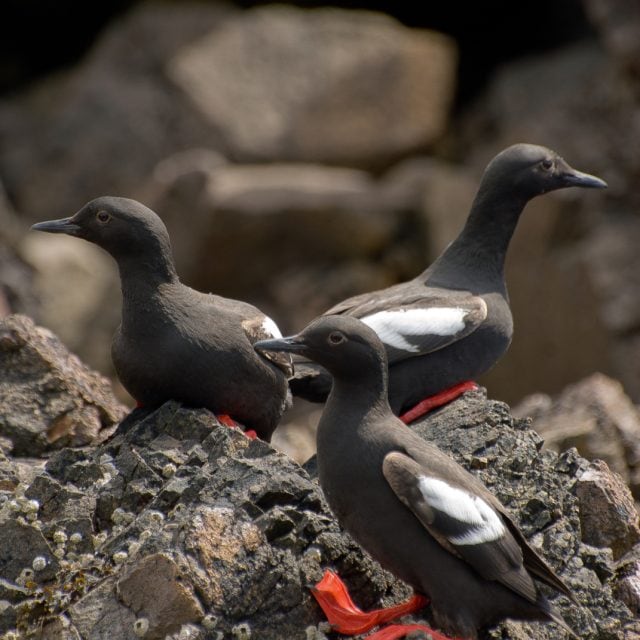



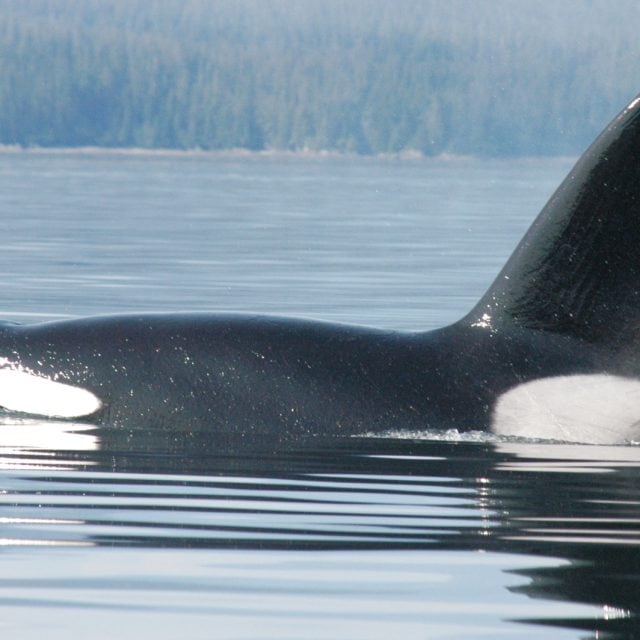

Itinerary
Itinerary
Day 1: Embarkation, Port McNeill
Our Orcas & Grizzlies sailing tour starts and finishes in Port McNeill, BC. Meet your crew & vessel late morning in Port McNeill. Upon boarding, cabins will be assigned and an introductory safety briefing will be completed. We will then escape civilization into a maze of islands and waterways featuring old growth forests, rugged archipelagos, cozy anchorages, and amazing wildlife.

Days 2-4: Johnstone Strait
Our focus these days will be on the waters of Johnstone Strait, Blackfish Sound, and Queen Charlotte Strait where we hope to encounter whales. Two species of Orca can be spotted in these waters: Northern Resident Orca and Bigg’s (transient) Orca. In addition, keep watch for the blows of humpback whales whose population has made a significant comeback to these waters.We will visit the modern Kwakwaka’wakw community of Alert Bay to visit the U’Mista Cultural Centre. A highlight of their display is the impressive Potlatch Collection featuring masks and regalia which were confiscated by the Canadian government in 1921. The Kwakwaka’wakw people fought for decades for the return of these sacred items. Thanks to their efforts, these important items now help us learn about the art, culture, and history of the Kwakwaka’wakw people.

Days 5 - 6: The Broughton Archipelago and Bears
We will spend time navigating the labyrinth of undeveloped islands of Broughton Archipelago Marine Provincial Park. Exploring within these multitude of islands, we can search for different species of marine mammals, observe a variety of sea bird species, and visit remote beaches.
As we travel deeper into the coastal fjords surrounded by the snow-capped peaks of the Coast Mountains we enter an important habitat for grizzly bears and black bears. Starting in August, salmon return to spawn and this essential source of food concentrates bears in estuaries and along the rivers in the best places to fish.

Day 7: Departure
Mid morning we return to Port McNeill to complete our voyage. Participants can catch afternoon flights back to Vancouver.
What to Expect
What to Expect
On our British Columbia Orcas and Grizzlies sailing tour, as in all of our destinations, our itineraries remain flexible. This allows the crew to take time to enjoy wildlife sightings, spend more time at an ancient village site, or simply cater to the interests of the group.
Usually on the Pacific Coast we have a good variety of constantly changing weather. Expect a mixture of sunshine, rain and wind on most trips. You will require waterproof rain gear and rubberboots as most of our landings will be wet, where you will be stepping into the water and onto the beach.
We travel in protected areas most of the time. On many days of the summer this coast is like sailing on a lake – flat and calm. Sometimes we cross into open water for short periods of time where we may experience greater motion. If you are prone to motion sickness it is a good idea to bring sea sickness medication. Check with your doctor.
All of our meals are served buffet style. We can usually accommodate most special dietary concerns if we are given sufficient advance notice.
Ship & Deck Plan
Ship & Deck Plan: Island Solitude
Island Solitude
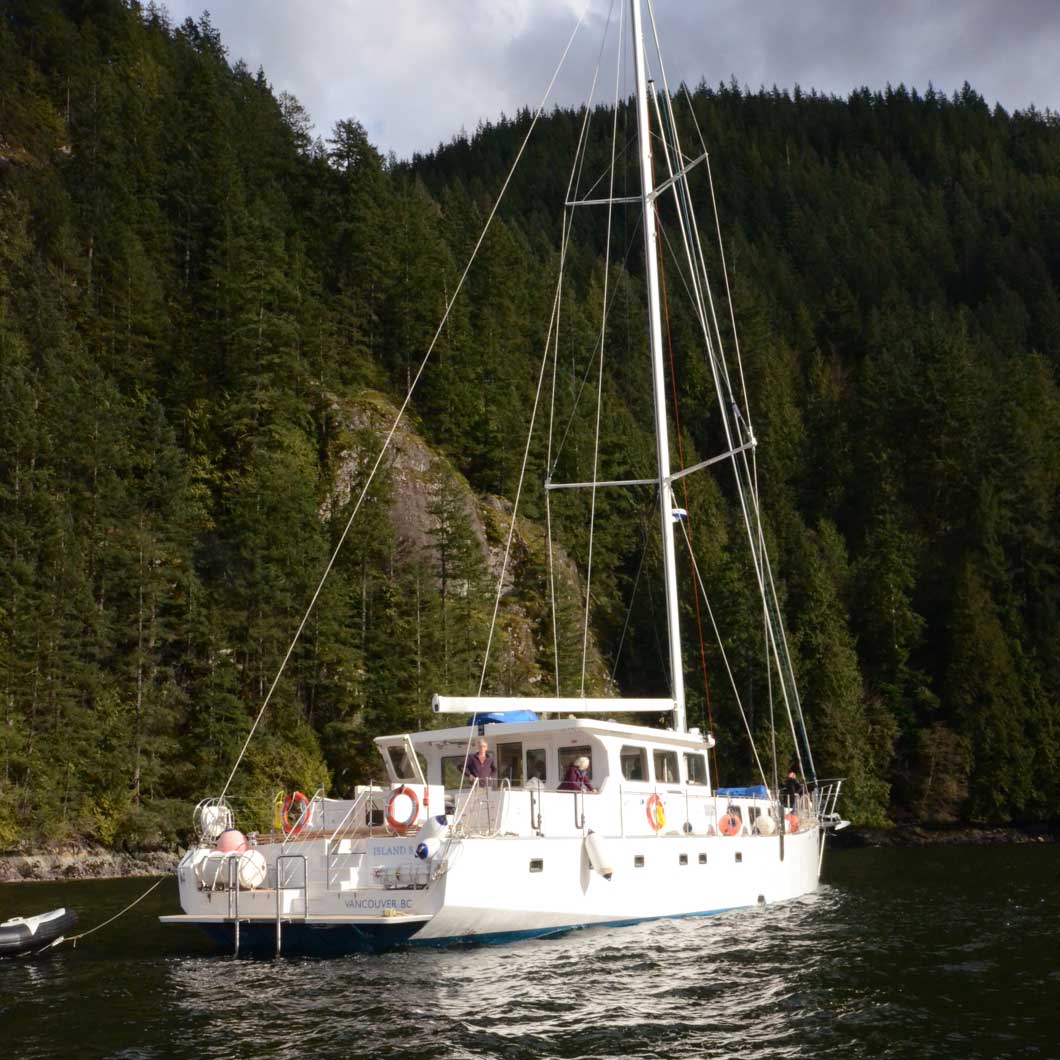
The newly built, SV Island Solitude is 82′ long and accommodates twelve guests in six cabins. Each is furnished with two lower berths and a private ensuite bathroom, complete with a hot shower. The spacious wheelhouse, located on the main deck, accommodates the entire group during meal time where guests will enjoy healthy and deliciously prepared food surrounded by 360-degree views.
Built on the British Columbia coast with the environment in mind, the engines exceed EPA emission standards. Designed specifically for expedition travel, Island Solitude provides elegance and comfort in while exploring some of the most remote and beautiful coastal areas.
There is plenty of space on deck for wildlife watching with 2 zodiacs for daily shore excursions and 5 stable sea kayaks for guests to use whenever the vessel is at anchor.
Learn MoreFrequently Asked Questions
Frequently Asked Questions
Featured Wildlife
Featured Wildlife
While we cannot guarantee sightings of the birds or mammals listed below, we believe that encountering these species is quite likely during this tour.
- Orca (Killer Whale)
- Humpback Whale
- Black Bear, Grizzly Bear
- Bald Eagle
- Black Oystercatcher
- American Dipper
- Chestnut-backed Chickadee
- Pigeon guillemots
- Rhinoceros auklets
